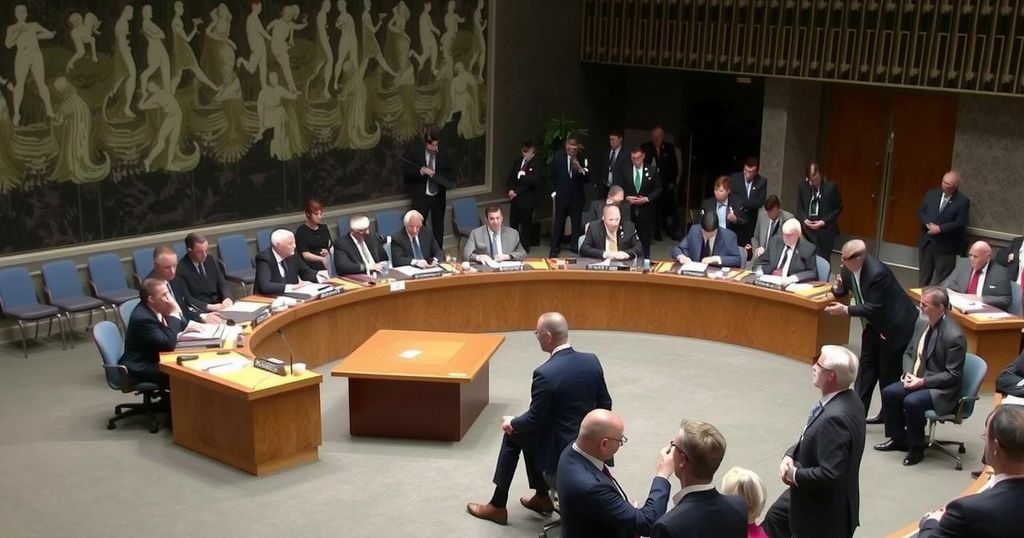The UN General Assembly passed a resolution on December 12, 2024, calling for an immediate and unconditional ceasefire in Gaza, with overwhelming support despite rejection from the US and Israel. The resolution seeks to ensure the release of hostages and facilitate humanitarian aid amidst escalating violence resulting in significant civilian casualties.
On December 12, 2024, the United Nations General Assembly adopted a resolution calling for an immediate and unconditional ceasefire in Gaza, with 158 votes in favor and 9 against, alongside 13 abstentions. This resolution, which the United States and Israel have rejected, similarly echoes a previous text vetoed by the US in the Security Council. It specifically demands the release of all hostages held by Hamas and seeks to facilitate urgent humanitarian aid to the beleaguered people of Gaza. Israeli officials criticized the assembly’s resolution, claiming it lacks logic and constitutes complicity in Hamas’ actions. The ongoing conflict has resulted in over 44,805 fatalities in Gaza, predominantly among civilians, amplifying calls for international intervention and accountability.
The recent UN General Assembly resolution emerges amid escalating humanitarian crises in Gaza, following months of violent conflict that commenced with an attack by Hamas on October 7, 2023. The United States has historically utilized its veto power in the Security Council to shield Israel from resolutions perceived as unfavorable, reinforcing its strategic alliance with the Israeli government. The assembly’s non-binding resolution reflects international concern over civilian suffering and the urgent need for peace in the region, amidst the geopolitical complexities that often hinder effective solutions.
In summary, the UN General Assembly’s call for an unconditional ceasefire in Gaza underlines the international community’s concern for humanitarian conditions amid an ongoing conflict. Despite overwhelming support from member states, the resolution has faced rejection from the United States and Israel, showcasing the contentious political landscape surrounding the Israeli-Palestinian conflict. The assembly’s actions signal a critical moment for diplomatic engagement and humanitarian intervention, as the situation in Gaza continues to deteriorate.
Original Source: www.jordantimes.com






